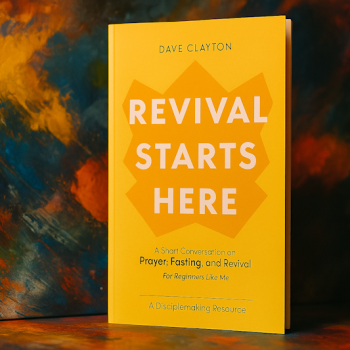
The call to live a quiet life may feel both appealing and impossible in the demanding, loud hustle and bustle of our highly anxious and fast-paced society. However, a socio-economic study reveals that society was relatively as anxious, loud, and fast in Thessalonica when Paul wrote his timeless challenge, “Make it your ambition to lead a quiet life,” to the Thessalonian church (1 Thessalonians 4:11, NIV). Into a culture of abundance, Paul challenges the persecuted Thessalonian Church to ambitiously and intentionally find itself rooted in contentment found through a countercultural way of living – a way of living that is quiet.
There is so much in 1 Thessalonians 4:11, that is worthy of further exploration. In this passage, I believe Paul uses some deliberate and calculated words like ambition, lead, and quiet. This week, I have been reflecting on Paul’s idea of quiet. Paul starts his summons to a quiet life by challenging the Thessalonian followers of Jesus to make it their ambition to lead a quiet life. The King James Version translates Paul’s challenge not as ambition and lead, but rather that we are to study to be quiet. Both words, study and lead, I think capture Paul’s intent that the way of living quietly is actionable – a way of living they were to approach ambitiously and intentionally as individuals and as a church community, but also that this way of quiet living must have an expression of fruitfulness that is witnessed by those around us in the places we each live, worship, work, and play.
In challenging them to ambitiously and intentionally lead quiet lives, Paul is actually calling them to set a prophetic example by ambitiously and intentionally leading lives of stillness. In fact, the word for quiet certainly implies a level of stillness (Strongs). This sort of quiet living or stillness implies, “rest from work, cease from an altercation, [that I] am silent, [and to] live quietly” (Strongs, 2270). There are four other times in which the word for quiet is utilized in this form. These four appearances of quiet, help us to understand the quiet life Paul calls us to. First, this word appears in Luke 14, where the Pharisees ignore a question from Jesus by keeping their peace or by staying still (Luke 14:4, KJV). In Luke 23, after the women prepared their spices and ointments for Jesus’ burial, they rested the sabbath or experienced stillness (Luke 23:56, NIV). In Acts 11, as Peter reports to the Church at Jerusalem, the scriptures say “When they heard these things, they held their peace,” or they became still (Acts 11:18). We also find this word for quiet in Acts 21, when Paul was at the house of Philip the Evangelist, where the Spirit of God showed up in power and prophecy, and Paul learned of a fate that threatens him. The church tries to persuade Paul to not go on his mission, but Acts says “and when he would not be persuaded, we ceased,” or became still (Acts 21:14, KJV) Quiet living is stillness. It seems quiet living is a lot like Sabbath-like living. I encountered a blog post from Arthur Kurzwell, that quotes Rabbi Adin Steinsaltz saying – “The week is characterized by busyness or activity, while the Sabbath is grounded on stillness, on the nullification of oneself in the downpour of holiness” (Kurzell). This is a powerful line that needs to be unpacked at another time. However, Sabbath is grounded on stillness, away from busyness. In his call to a quiet life, Paul calls us to a countercultural course of Sabbath-like rest in which we ambitiously and intentionally refrain from labor, meddling speech, and live from a place of contentment with quiet and rest (Strongs).
“The week is characterized by busyness or activity, while the Sabbath is grounded on stillness, on the nullification of oneself in the downpour of holiness” – Rabi Adin Steinsaltz
This persecuted church has lived a bold and resilient faith, but Paul encourages them to encounter a level of Jesus-following in which they are not working too hard to make things happen. Too many of us are busy working for something or even the Kingdom of God in a way that I do not think Jesus ever intended, and that is Paul’s standing against in this passage. As Michael Breen has written in Building a Discipling Culture, “God designed us to be productive. But we build our identities around our activities” (Breen, Location 1174). In stillness, we find our identity. Truth be told when we are working, we are rarely ever present in the moment, but in stillness, we are forced to face the moment and everything that floods our thoughts in that stillness. We are working for a way of life or the weekend (as Loverboy sang).
“God designed us to be productive. But we build our identities around our activities” – Michael Breen
Paul’s idea of quiet – Sabbath-like stillness – speaks to being a people who find contentment at home and are good at minding their own business. The Thessalonians were called to not rest from the pain, problems, and persecution they were facing, but to live into the pain, problems, and persecution from a state of rest that they had prioritized in their life. Again, Breen comments, “But on the first full day of existence for Adam and Eve, God rested…This was our first full day, a day of rest. Then the work began. From this we see an important principle of life: we are to work from our rest, not rest from our work” (Breen, 1240). What I like to reflect on in the creation story is that there is no evening on Sabbath, inherently we can make the choice to live in the rest of God’s presence, an experience Jesus restored and exemplified in his ministry, a rest that is experienced in stillness.
Stillness has long been linked to an experiential necessity to tangibly experience God’s Spirit and presence. David remarks in Psalm 46:10, it is in the quiet state of stillness that we can practice being still and knowing God. As Moses told his people in a season of chaos and unrest, “Do not be afraid. Stand firm and you will see the deliverance the Lord will bring you today….The Lord will fight for you; you need only to be still” (Exodus 14:14, NIV). Through the prophet Isaiah, God told the people of God, “In quietness and trust is your strength, but you would have none of it” (Isaiah 30:15, NIV). In 1 Thessalonians 4:11, Paul gives God’s invitation to stillness. Stillness is intertwined with knowing and depending on God.
“In quietness and trust is your strength, but you would have none of it.” – Exodus 14:14
“Learning how to be still, to really be still and let life happen – that stillness becomes a radiance,” is the quote BrainyQuote associates with actor Morgan Freeman. I believe that this radiance is Paul’s hope for the Thessalonian church, that they experience a prophetic experience of quiet living with God that will resonate with them in a contagious way that God will use to bring about his sense of stillness (God’s presence, peace, restoration, identity, etc.) in, with, and through their lives – in the places they each lived, worked, and played. God desires the same for us, Paul’s challenge stands as an invitation for us today. Paul’s timeless wisdom should beckon us into a quiet way of life that is radiant and experiences God in the stillness. However, as I said in the beginning, the call to live a quiet life may feel both appealing and impossible in the demanding, loud hustle and bustle of our highly anxious and fast-paced society. I offer six ideas on how to move closer to a quiet life.
Prioritize Stillness in Daily Life
Take intentional moments each day to embrace stillness. It could be a few minutes of silence in the morning, a short walk without distractions, a moment of quiet reflection before bed, or meditation in the scriptures. Prioritize these moments to disconnect from the busyness around and within you.
Practice Sabbath-Like Rest
Designate a day or a specific time each week for Sabbath-like rest. Engage in activities that bring peace and rejuvenation, avoiding unnecessary work and distractions. Create a sacred space for yourself to experience the quiet and embrace the downpour of holiness in the midst of stillness. Where you are forced to face your thoughts and listen for God’s whispers.
Find Contentment in Stillness
Cultivate contentment in the quiet moments. Begin to find an understanding that true peace comes from within and doesn’t depend on external circumstances. This is not easy. When faced with challenges, approach them from a state of rest and trust, knowing that stillness is not the absence of problems but a powerful way to navigate through them. Remind yourself God will fight for you, all you have to do is be still.
Work from Rest, Not Rest from Work
Challenge the cultural narrative that glorifies constant busyness and achievements. Recognize that productivity is not the sole measure of success. It was not for the Thessalonian church, and should not be for us. Instead of working tirelessly for identity and achievement, find your true self in moments of stillness. Let the work of your hands flow from a rested state, allowing you to be more present and purposeful in each moment.
Connect with God in Stillness
Follow the example set by biblical figures like David and Moses who found strength and guidance in moments of stillness. Pull back like Jesus into the mountaintop experiences, so you can live rested in the valleys. Incorporate spiritual disciplines – prayer, meditation, or reading scriptures into your quiet times to deepen your spiritual connection. Allow stillness to be a space where you can listen and respond to the gentle nudges of God’s presence.
Share the Practice
Encourage those around you—friends, family, and your community—to embrace the concept of a quiet life with you. Habits are rooted better in our lives when they are shared with others who will help keep us on track and accountable. Do not be afraid to publicly share your experiences and the positive impact stillness has had on your well-being, so they too hear the radiance of such an experience. Consider creating spaces or activities that foster a sense of peace and quiet for others in the places you live, work, and play.
Allow stillness to be a space where you can listen and respond to the gentle nudges of God’s presence.
Remember, the call to live a quiet life is not about escaping the challenges of life but navigating them with a grounded and peaceful spirit. By incorporating these practical takeaways, you can gradually shift towards a life that reflects the quiet life ambitiously and intentionally encouraged by Paul in Thessalonians. In the demanding, loud hustle and bustle of our highly anxious and fast-paced society, we can hear Paul’s whisper of wisdom when we are still, and when we are ambitiously and intentionally willing to wrestle with an idea of quiet that extends beyond the absence of noise but rather one that resonates with the essence of Sabbath living. True quiet living is stillness and it invites us to refrain from unnecessary labor that burdens the soul, it avoids meddling in the affairs of others and cultivates a sense of inner quietness and rest with the presence of God.
What is burdening your soul that you need to let go of so that you can experience stillness? Living quietly doesn’t imply turning a blind eye to the hardships around us, and I do not believe Paul intends that for his audience. Instead, leading a quiet life encourages us to face challenges from a state of rest—a deliberate choice to prioritize stillness amid the storms of life – seemingly not only for ourselves but also for the prophetic witness it becomes for others. Ambitiously and intentionally prioritizing stillness – as a quiet way of living – creates a sanctuary in our lives in which we connect with our inner selves and God.
“Learning how to be still, to really be still and let life happen – that stillness becomes a radiance.” – Morgan Freeman
Works Cited
Breen, Michael. Building a Discipling Culture. Pawley’s Island, SC: 3DM, n.d. Kindle.
Kurzwell, Arthur. “The Sabbath Is Ground On Stillness.” Accessed October 14, 2023. https://arthurkurzweil.com/2022/10/rabbi-adin-steinsaltz-the-sabbath-is-grounded-on-stillness/.
“Strong’s Greek Concordance: 2270.” Accessed October 13, 2023. https://biblehub.com/greek/2270.htm.













